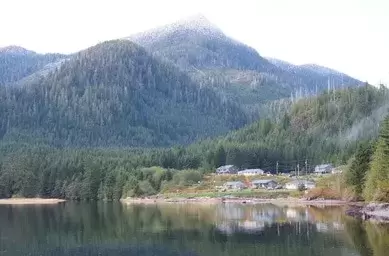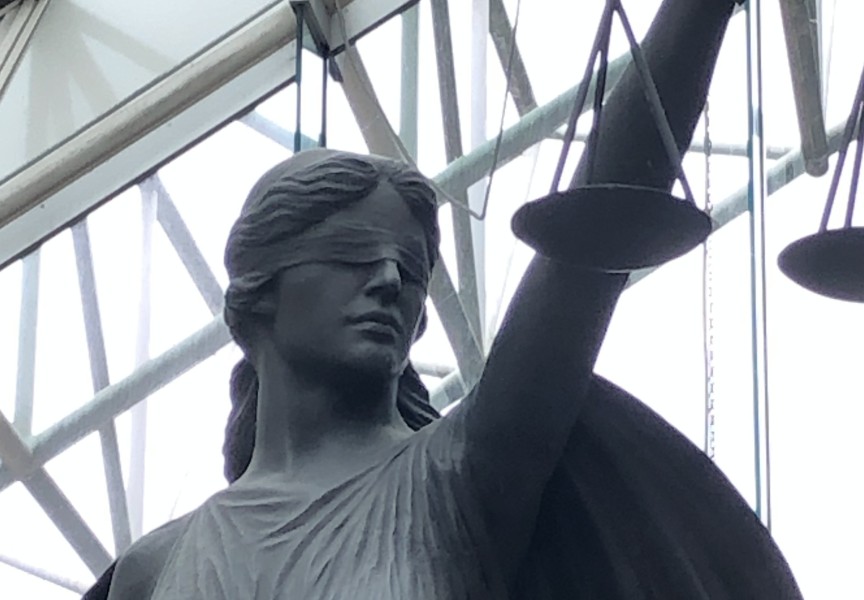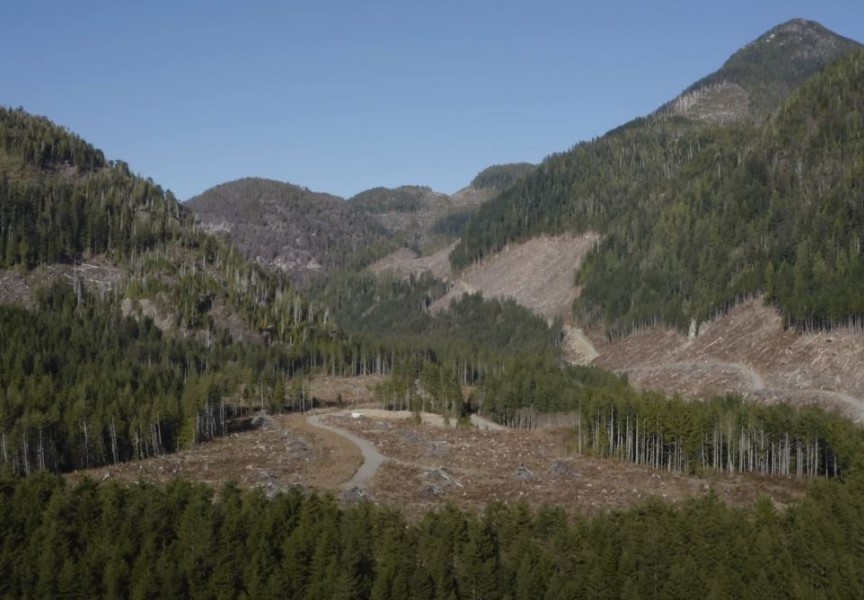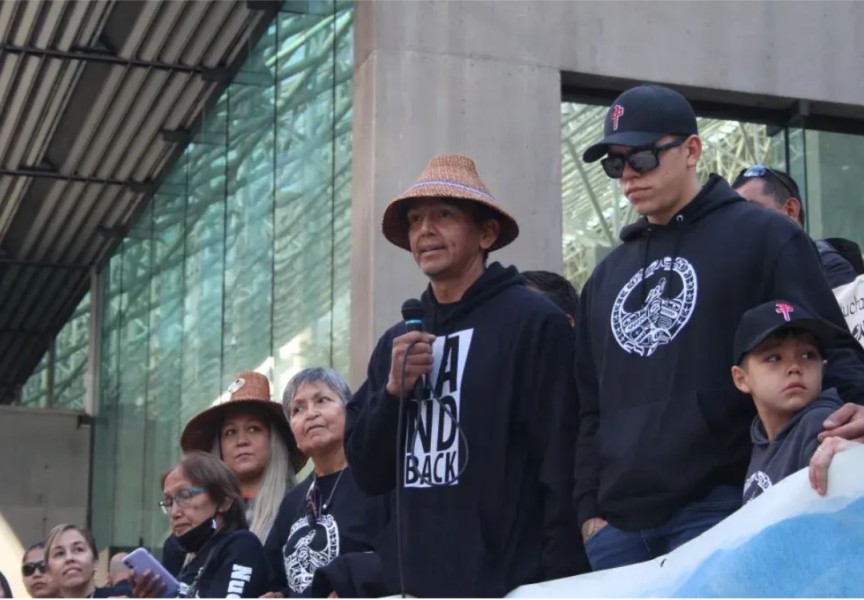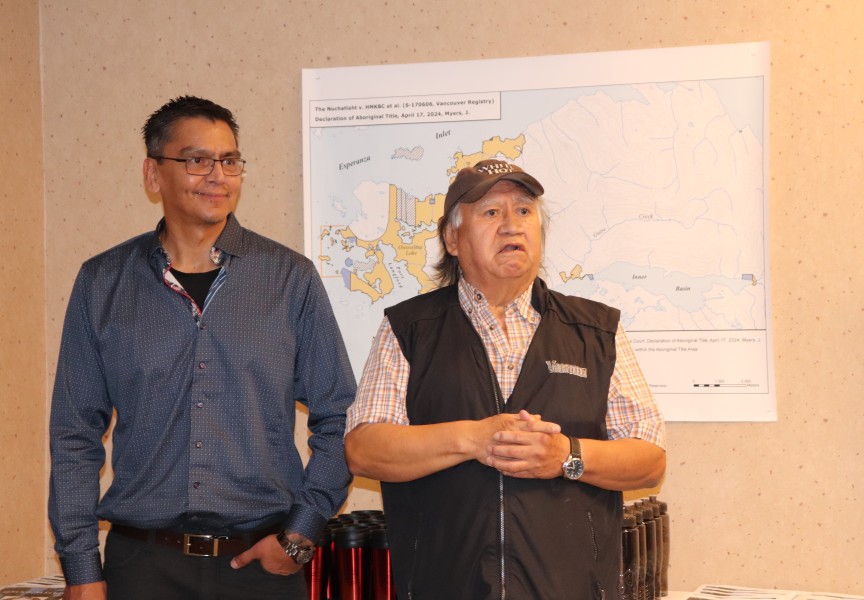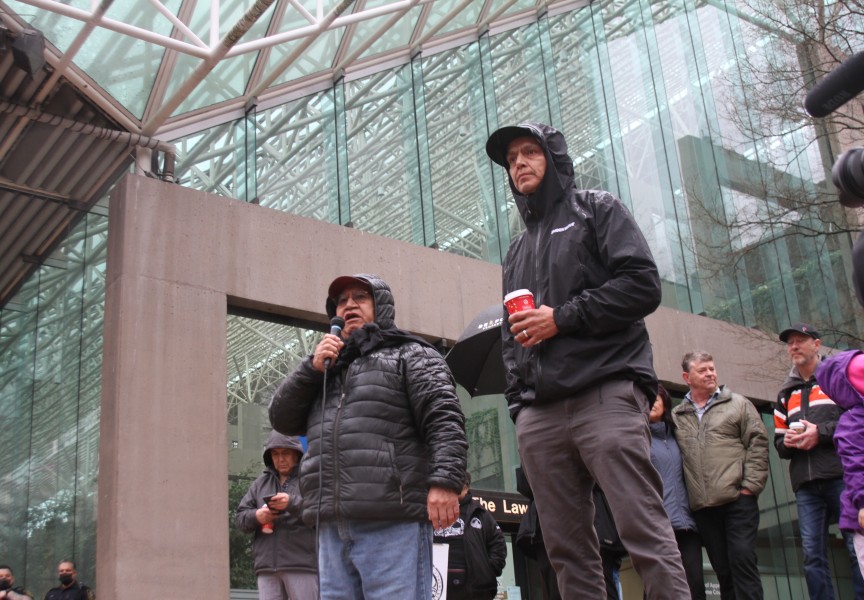Each party’s version of the facts have been submitted to the Supreme Court of B.C., but a claim for the Nuchatlaht First Nation’s title over its territory isn’t expected to be heard until next year.
This was the update from Jack Woodward, the lawyer leading the Nuchatlaht’s legal fight for its hahoulthi on the north portion of Nootka Island. In a newsletter to the Nuu-chah-nulth Nation of less than 200 members in June, Woodward explained that the case encompasses pleadings from the Government of Canada, the Province of British Columbia and Western Forest Products, which has harvested lumber from Nootka Island.
“None of them admitted that the Nuchatlaht historically used or occupied the claim area to the extent needed to prove aboriginal title,” said Woodward. “But Canada did at least admit that the present-day Nuchatlaht are the descendants of the same aboriginal group that existed in 1846, the year that the Nuchatlaht territory was included in the country that is now called Canada. This helps.”
Woodward was part of the legal team that helped gain aboriginal title for the Tsilhqot’in Nation, a semi-nomadic group of six bands in central B.C. who share a common culture and history. The 2014 ruling marked the first time the Supreme Court of Canada recognized a First Nation’s legal right to its traditional territory in a manner that overrides a province’s claim to have forestry activities on the land. The Nuchatlaht’s current claim seeks to draw upon the historic Tsilhqot’in decision.
The Nuchatlaht stated that it has exclusively occupied its hahoulthi on the northwest region of Vancouver Island, where the land has been continually maintained by a traditional hereditary government. In ancient times the Nuchatlaht muschim (people) have even defended this territory with arms.
Although early European settlers recognized the Nuchatlaht’s traditional ownership and governance in this land, modern governments have facilitated industrial activity that brought few benefits to the First Nation, according to the Nuchatlaht.
“Nuchatlaht has spent many frustrating years of discussions at the Treaty table and other processes trying to protect our lands and the health of our people. Successive governments have failed to give Nuchatlaht serious iisaak (respect) for their rights and title,” said Tyee Ha’wilth Walter Michael in a statement from the First Nation in January. “These governments need to hear from the court system to allow us to restore and protect our ancestral lands for the benefit of all future generations.”
Aboriginal title over a territory entails the legal right to use, enjoy and profit from a specified piece of land. The Tsilhqot’in decision could bode well for the Nuchatlaht due to the importance the Supreme Court of Canada placed on historical occupation of the territory, continuity of habitation on the land and the Nation’s exclusivity in the area.
The Nuchatlaht’s notice of civil claim to the Supreme Court of B.C. states that the First Nation has been in sole possession of its land since 1846, but this aboriginal title continues to be infringed upon due to B.C’s Park Act and Forest Act. The notice states that the Nuchatlaht had their access to this land impeded by Western Forest Products as the company harvested from Nootka Island.
As the case progresses, all parties are required to list documents they intend to rely on in court. The case isn’t expected to be heard in the Supreme Court of B.C. until 2018, said Woodward.
“This involves trying to find a slot in the court’s schedule when they have tie to hear us,” he said. “Optimistically, we hope that [we] might get dates as early as April to June 2018, but this very much depends on the availability of judges and other factors outside of our control.”

